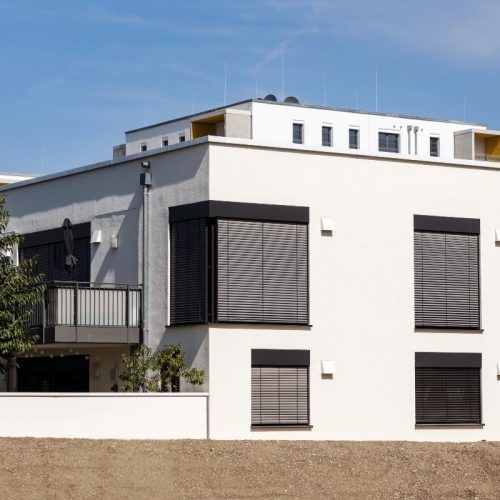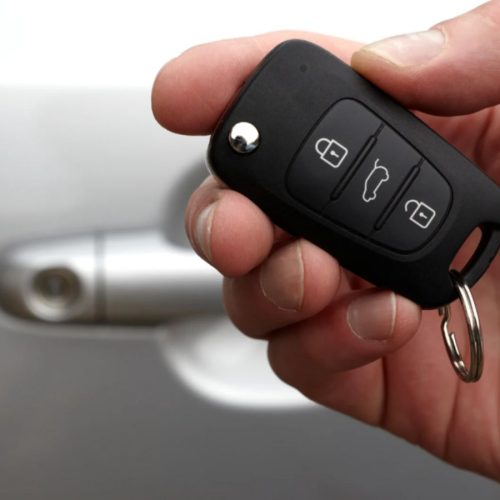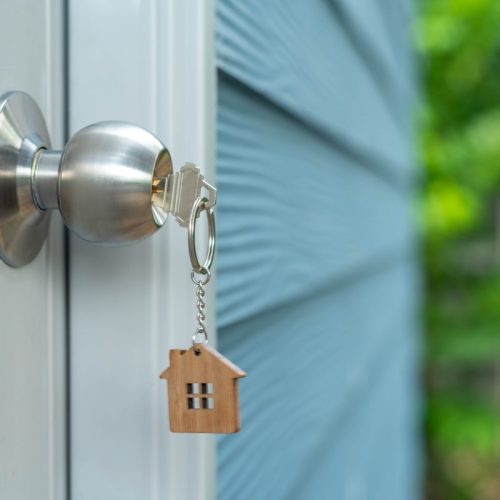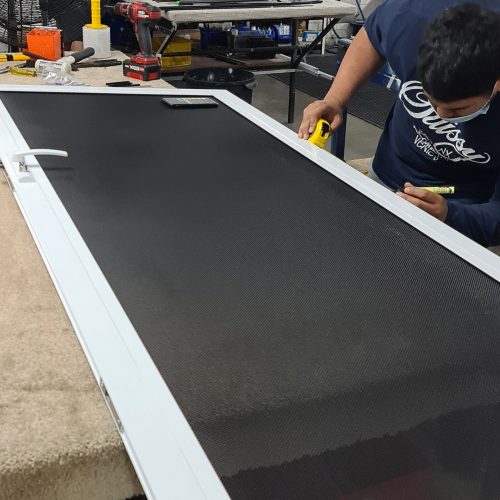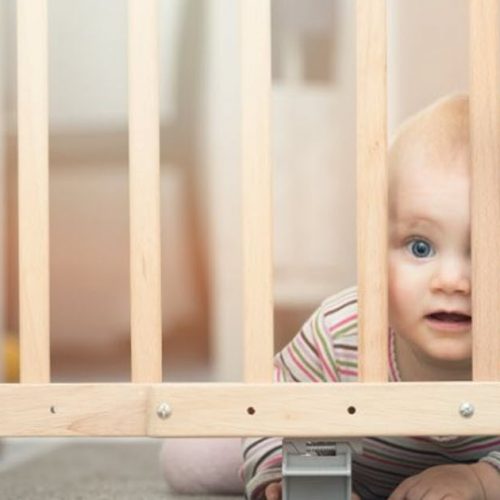
If you have a baby or one on the way, you already know there’s nothing you wouldn’t do to keep your baby safe. However, there are many potential hazards around your home, and it can be overwhelming to identify them all on your own. There are also other less common ways to increase the safety and security of your home.
To help make your parenting journey a calmer one, we’ve prepared some handy tips and measures to help you keep your baby safe at home.
Baby Safe Home Improvement
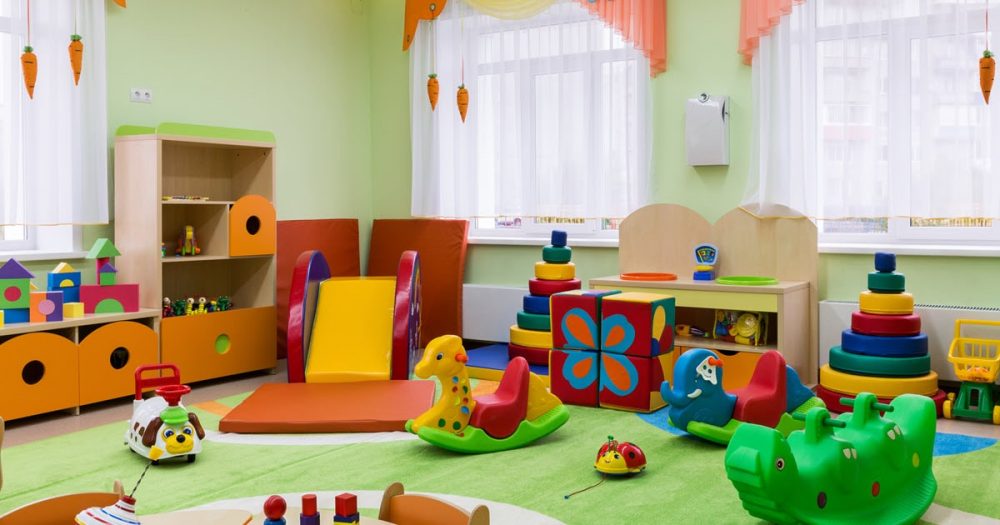
Babies don’t understand the concept and reality of danger yet, so it’s up to you to minimise hazards. Luckily, there are plenty of changes you can make around your house to keep your baby safe. Some changes may be obvious, while others may require some work.
An easy way to keep your baby safe is to remove cords that your baby could get tangled in, such as:
- Electric cords
- Curtain cords
- Hanging mobiles and crib toys
A commonplace for injuries to occur is in the bathroom. To keep your baby safe in the bathroom, opt for non-skid rubber mats and always watch your baby while in the bath. Baby gates are a must at the top and bottom of stairs to prevent babies from falling or going upstairs unsupervised. There are many baby gates on the market, so in order to keep your baby safe ensure you choose a gate that is high quality and meets your individual needs.
Some permanent changes to consider to help keep your baby safe are security screens and doors. While parents are very hypervigilant and protective of their children in public places, at home we may feel more relaxed. To keep your baby safe from strangers entering your home, it’s important to install high-quality window locks and door locks. This will keep your baby safe by deterring intruders.
For extra protection invest in high-quality security doors. Stainless steel security doors are tough and durable, making it hard for intruders to enter your home.
Fire safety measures are an important thing to install in any home. Ensure you have a fire extinguisher that suits common household fires and have your fire alarms tested. Ensure your windows are easy to escape from.
Egress window screens are designed to get you and your family out of the house quickly and unscathed in the event of a house fire. Another great benefit of these screens is that while you can easily exit, intruders cannot enter your home in the same way.
Security window film is also a great option to keep your baby safe from shattered glass. Window film helps glass stay together in the face of severe weather. If your home was built before 1978 and has peeling paint, have this removed or sealed by a professional. The dust from lead paint can be harmful if ingested.
Medicines, Poisons and Houseplants
Keep your baby safe by storing medicines, cleaning supplies and other poisons in a locked cabinet, or as high up as possible. Babies can’t tell the difference between bottled medicine and lollies. Further, if you do use chemicals in your house for cleaning or pest prevention, opt for natural solutions.
Houseplants should be kept out of reach of babies too. Why? Babies learn about objects by putting them in their mouth. Some houseplants are poisonous and could make your child sick.
If your baby swallows something dangerous, call the Australian Poisons Information Line, on 13 11 26. Alternatively, go to your nearest emergency department or call triple zero if the situation is more serious.
Furniture Choices to Keep Your Baby Safe
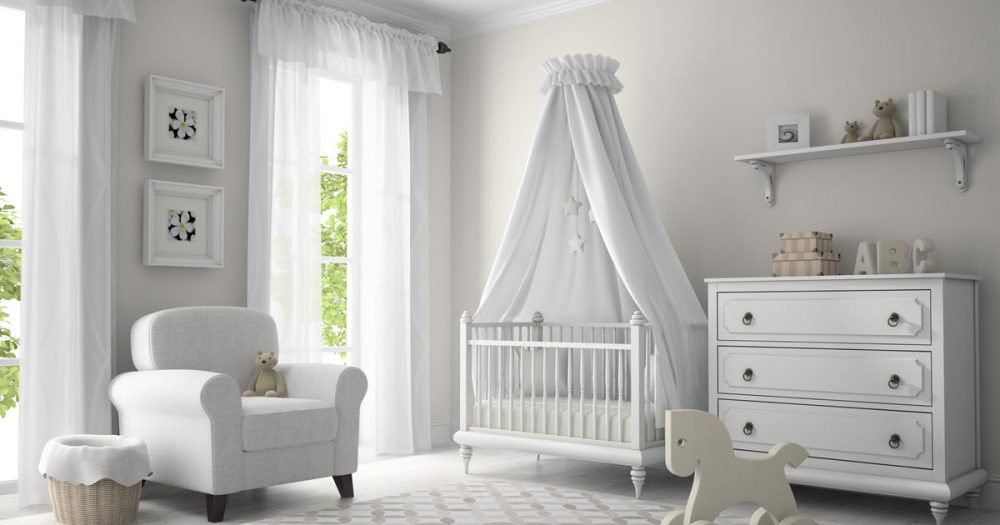
When babies are learning to walk, they’ll use furniture to help them get up and stay on their feet. For this reason, it’s important to choose your furniture wisely and keep it secured to your floors or walls where possible.
If your furniture is not secure and can be pulled over, this could cause significant injury to your baby. Some common types of furniture to secure to your floors or walls are:
- Bookcases
- Dressers
- TV’s
- Freestanding mirrors
- Hat stands
- Light stands
If you are renting, it is still possible to secure furniture. A recent law has been passed making it near impossible for landlords to refuse this request to their tenants.
When choosing furniture try to opt for furniture with curved edges. If it’s not possible to change your furniture all together attach protective padding or other covers to furniture and countertops with sharp corners. You should also move furniture to cover open outlets or use safety plugs.
If you have a fireplace, ensure you install protective screens around the hearths. If you have rugs throughout your home, put non-slip pads under them.
Keep Your Baby Safe with Child Locks
Babies are adventurous and inquisitive and without the proper precautions in place, they could get themselves into trouble. If they are walking, or even crawling, they will likely be able to get into most cupboards and drawers.
Babies lack balance and spatial awareness and are likely to hurt themselves by getting their fingers jammed or pulling the doors into themselves. Put latches on cabinet drawers to keep your baby safe by preventing them from opening and closing cabinetry.
What is more of a threat to your baby’s safety is what’s inside cupboards and draws. Chemicals, kitchen knives and other sharp objects should be stored in a child locked drawer.
Another less thought about the threat to your baby is toilets. According to Kidsafe, drowning is one of the leading causes of unintentional deaths for Australian children. In the home, you can add a lock to toilet lids to prevent this tragedy.
When your new bundle of joy arrives home, you want to enjoy your home-life without the worry of a baby getting into places and situations they shouldn’t. The right advice and products will keep your baby safe, happy and secure in your home.
Need some help getting your home secure for your baby? Contact Central Screens & Locks today to find out how we can create a safer more secure home for your baby.
